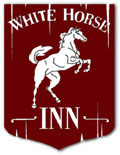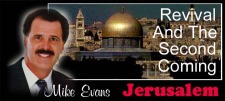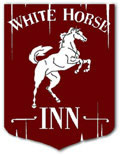"Be Filled with the Spirit" -- Ephesians 5:15-21
 Wednesday, May 5, 2010 at 03:38PM
Wednesday, May 5, 2010 at 03:38PM  The Twelfth in a Series of Sermons on Ephesians
The Twelfth in a Series of Sermons on Ephesians
When Paul tells us in Ephesians 5:18 to be “filled with the Spirit,” many people get a bit nervous. The reason we get nervous is because we’ve all seen what goes on in the revivalist’s tent or on TBN. Sadly, being “filled with the Spirit,” is easily equated with the shoddy theology and gimmickry of modern Pentecostalism, and so of course we get nervous if we think that Paul is commanding us to do what they do. When Paul tells us to be filled with the Spirit, he is setting forth a sharp contrast between pagan self-indulgence and Christian submission to the will of God. My prayer is that we would hear Paul’s words afresh and that we would be truly filled with the Holy Spirit in the way intended by the Apostle Paul, and that as a result, our hearts would be filled with thanksgiving and that Psalms, hymns and spiritual songs would roll off our tongues in submission to, and in adoration of our Savior Jesus Christ.
As we continue our series on Paul’s Epistle to the Ephesians we are working our way through chapter 5 and considering Paul’s discussion of the Christian life. Since sound doctrine is the foundation of Paul’s teaching regarding the Christian life, it is important we keep that doctrine in mind whenever we discuss how our faith in Christ is to be worked out in daily life. We cannot live as God would have us to live without understanding the gospel which creates faith and which has already raised us from death to life.
Recall that in the opening chapter of Ephesians, Paul sets forth the big picture of our redemption. Redemption has been decreed by God, our redemption was accomplished by Jesus Christ, and it is applied to us by the Holy Spirit. In Ephesians 2, Paul taught us that we are saved by grace alone, through faith alone, on account of Christ alone, while in chapter three, Paul tells us that the mystery which had been hidden in the Old Testament (the gospel), is revealed in the New. The gospel declares to us that through his death upon the cross, Jesus Christ forms believing Jews and Gentiles into one new people–the church, which is the body of Christ. While the cross shows us the love of God, the death and resurrection of Jesus is the proof that God is able to do for us far more than we ask or think.
While discussing the Christian life in chapters 4-6, Paul uses a number of simple yet powerful metaphors and illustrations. Through the use of these metaphors Paul is able to instruct us that the Christian life (and our sanctification) amounts to a complete break with non-Christian ways of thinking and doing. This break occurred when God made us alive with Christ. Just we as died to sin and rose to newness of life in our baptism (the sign and seal of what God has done for us through the death and resurrection of Jesus), Christians are to leave behind non-Christian ways of thinking and doing, while at the same time striving for unity within the body of Christ. We are also to strive to grow in spiritual maturity in which all members of the body build each other up in love. When the body functions as it should, Christians grow to maturity. The paradox is that it is our striving for maturity which in turn builds up Christ’s body.
To read the rest of this sermon, Click here











